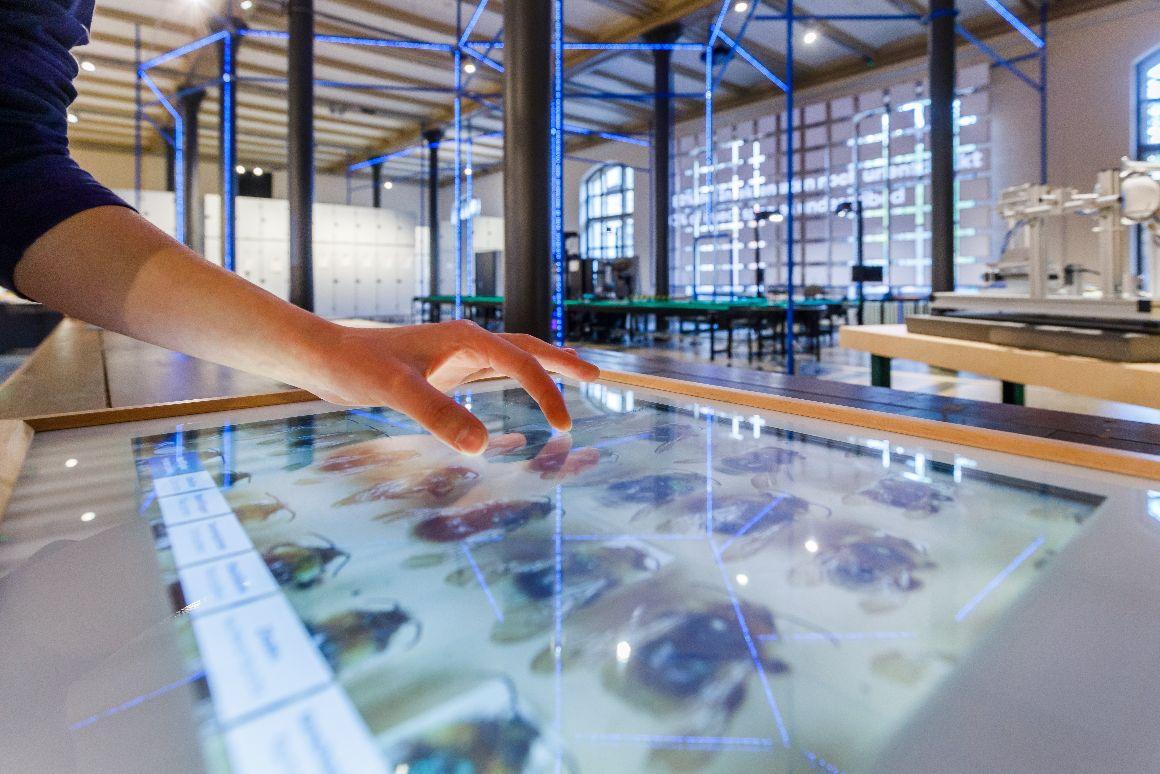Revitalising the past, understanding the future: The new knowledge lab for natural science collections and object-centred data – "WiNoDa" – creates modern expertise for science and society.
Research collections consist of 30 million objects and contain a treasure of information and data in their collections. This aforementioned content not only reveals fascinating stories from times past, but also provides a glimpse into the future. The challenge is to capture relevant information from the numerous objects - at this point the WiNoDa project sets in.
The WiNoDa project, as a "knowledge laboratory for natural science collections and object-centred data", aims to create a customised laboratory for excellent, multidisciplinary research in the field of collections. The digital transformation offers new opportunities for networking data and linking knowledge across different disciplines.
The examination of natural history objects in context of archaeological excavations serves as an example. The standardised collection of data from different disciplines in the field allows knowledge to be placed in a new context and new research questions to be asked, particularly about the human past and the living environment of that period.
The challenge lies in the development of expertise for innovative evaluation and analysis methods, not just in the quantity or complexity of the data. WiNoDa promotes precisely these necessary skills in order to meet the demands of digital change.
The knowledge lab focuses on three main areas: Learning, Research and Networking. It combines teaching content and offers supporting resources for research. It strengthens skills in open science and public engagement and promotes networking between scientists and related professions. The results are recorded digitally and presented at scientific conferences to promote exchange.
WiNoDa is a group of research and supporting organisations across Germany working together. The Museum für Naturkunde Berlin (MfN) has an important role. It contributes their knowledge, which is based on a collection of 30 million objects and includes physical as well as digital parts.
The German Archaeological Institute (DAI) has expertise in scientific work with natural history objects as well as knowledge in the management of these data. The Zuse Institute Berlin (ZIB) provides the necessary IT resources for the storage, processing and presentation of data and is working with the partners to establish a research platform for joint analyses using state-of-the-art artificial intelligence methods.
The Central Office of Gemeinsamen Bibliotheksverbundes GBV (VZG) in Göttingen is a partner in terms of information infrastructure. The Vernetzungs- und Kompetenzstelle Open Access Brandenburg (VuK) at the Potsdam University of Applied Sciences contributes its expertise in the areas of Open Science and Open Educational Resources (OER). The Society for Biological Data (GFBio e.V.) supports the project particularly in the management of research data, starting with the search for research data, starting with the search for data through to publication and archiving.
Together, they create learning materials in various formats that are customised to the needs of researchers. A helpdesk provides support for individual questions and problems relating to research data and data analysis.
This multidisciplinary collaboration ensures that WiNoDa has access to a comprehensive expertise and resource base. Collaboratively, the project partners endeavour to promote collection-based research, combine the humanities and natural sciences and create inspiration for applied research.
The establishment of a data competence centre and the implementation of innovative formats mark a significant step for the future of science in German museums and collections.
The project is funded by the Federal Ministry of Education and Research (BMBF).
